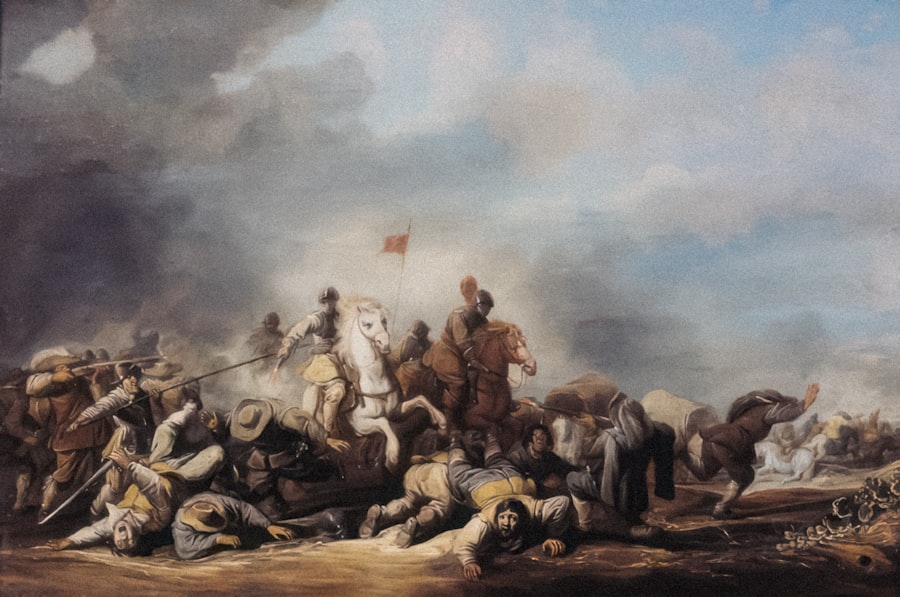Colonial and imperialist historiography encompasses the study of historical narratives that focus on the processes, impacts, and legacies of colonialism and imperialism. This field of inquiry has evolved significantly over the years, reflecting changing perspectives on power dynamics, cultural exchanges, and the experiences of colonized peoples. Historians have grappled with the complexities of colonial rule, examining not only the political and economic dimensions but also the social and cultural ramifications of imperial endeavors.
The historiography surrounding these topics is marked by a rich tapestry of interpretations, methodologies, and theoretical frameworks that have emerged in response to the shifting sands of historical understanding. The significance of colonial and imperialist historiography lies in its ability to illuminate the multifaceted nature of power relations between colonizers and the colonized. It challenges traditional narratives that often glorify imperial conquests while neglecting the voices and experiences of those who suffered under colonial rule.
By critically engaging with primary sources, oral histories, and postcolonial theory, historians have sought to reconstruct a more nuanced understanding of the past. This endeavor not only enriches our comprehension of historical events but also informs contemporary discussions about identity, memory, and the legacies of colonialism in today’s world.
Key Takeaways
- Colonial and imperialist historiography has been a dominant framework for understanding history, focusing on the impact of European colonization and imperialism on the world.
- The Cambridge School, led by scholars like John Gallagher and Ronald Robinson, challenged traditional colonial historiography by emphasizing the agency of non-European societies in shaping their own destinies.
- Critiques of colonial and imperialist historiography highlight its Eurocentric bias and its tendency to overlook the experiences and perspectives of colonized peoples.
- The Cambridge School has had a significant impact on historical scholarship by inspiring new research agendas and methodologies that center the voices and experiences of colonized peoples.
- Reevaluating colonial and imperialist historiography involves incorporating new perspectives and sources to provide a more nuanced and inclusive understanding of the impact of colonialism and imperialism. The future of colonial and imperialist historiography lies in continuing to challenge traditional narratives and centering the voices of marginalized communities.
The Cambridge School: Origins and Key Figures
The Cambridge School of historiography emerged in the mid-20th century as a significant force in the study of British imperial history. Rooted in the intellectual milieu of Cambridge University, this school is characterized by its emphasis on the political and economic dimensions of imperialism, particularly through the lens of liberalism. Key figures such as Sir John Seeley, who famously asserted that “the British Empire was acquired in a fit of absence of mind,” laid the groundwork for a more analytical approach to understanding imperial expansion.
Seeley’s work highlighted the often unintended nature of imperialism, suggesting that it was not merely a product of deliberate policy but rather a complex interplay of social, economic, and political factors. Another pivotal figure in the Cambridge School is E.
Hobsbawm, whose Marxist perspective provided a critical counterpoint to more traditional narratives. Hobsbawm’s analysis of imperialism as an extension of capitalist expansion underscored the economic motivations behind colonial endeavors. His work encouraged historians to consider the broader global context in which imperialism operated, linking it to the rise of industrial capitalism and class struggles.
The Cambridge School’s focus on economic factors, combined with its attention to political ideologies, has had a lasting impact on how historians approach the study of colonialism and imperialism.
Critiques of Colonial and Imperialist Historiography

Despite its contributions to historical scholarship, colonial and imperialist historiography has faced significant critiques over the years. One major criticism is that it often perpetuates Eurocentric perspectives that prioritize Western narratives while marginalizing indigenous voices and experiences. This tendency can lead to a distorted understanding of history that overlooks the agency of colonized peoples.
Critics argue that many historians have relied too heavily on colonial archives, which are inherently biased and reflect the perspectives of those in power. As a result, the complexities of local responses to colonial rule are frequently oversimplified or ignored altogether. Furthermore, some scholars contend that traditional historiography tends to frame colonialism as a linear process characterized by clear stages of conquest, administration, and eventual decolonization.
This perspective can obscure the messy realities of colonial encounters, which were often marked by resistance, negotiation, and adaptation. Postcolonial theorists like Edward Said have challenged these narratives by emphasizing the importance of cultural representation and the ways in which colonial discourse shapes perceptions of the “Other.” Such critiques have prompted historians to adopt more interdisciplinary approaches that incorporate insights from anthropology, cultural studies, and gender studies, thereby enriching our understanding of colonial and imperialist histories.
The Impact of the Cambridge School on Historical Scholarship
The Cambridge School has had a profound influence on historical scholarship, particularly in shaping how historians conceptualize imperialism and its consequences. By foregrounding economic factors and political ideologies, this school has encouraged subsequent generations of historians to critically engage with the motivations behind colonial expansion. The emphasis on liberalism as a driving force behind British imperialism has led to a reevaluation of how economic interests intersect with political power.
This approach has opened up new avenues for research, prompting historians to explore the connections between imperialism and global capitalism. Moreover, the Cambridge School’s focus on political history has inspired scholars to investigate the role of institutions and governance in shaping colonial experiences. By examining how colonial administrations operated and interacted with local populations, historians have gained insights into the complexities of power dynamics within colonial contexts.
This institutional perspective has also facilitated comparative studies between different empires, allowing for a more nuanced understanding of how various colonial powers approached governance and control. The legacy of the Cambridge School continues to resonate in contemporary historiography as scholars seek to build upon its foundational ideas while addressing its limitations.
Reevaluating Colonial and Imperialist Historiography
In recent years, there has been a concerted effort among historians to reevaluate colonial and imperialist historiography through various lenses. One significant development is the rise of postcolonial studies, which seeks to deconstruct dominant narratives and highlight the voices of marginalized groups. Scholars such as Gayatri Chakravorty Spivak and Homi K.
Bhabha have emphasized the importance of understanding how colonialism has shaped identities and cultural practices in both colonized and colonizing societies. This approach encourages historians to consider how power operates not only through overt domination but also through cultural representation and discourse. Additionally, there has been a growing recognition of the need for interdisciplinary collaboration in studying colonial histories.
By integrating methodologies from fields such as anthropology, sociology, and cultural studies, historians can develop more comprehensive analyses that account for the complexities of colonial encounters. For instance, ethnographic approaches can provide valuable insights into local responses to colonial rule, revealing how communities navigated their realities amidst external pressures. This reevaluation process is not merely an academic exercise; it has real-world implications for how societies confront their colonial pasts and engage with issues of memory, identity, and reconciliation.
The Future of Colonial and Imperialist Historiography

Looking ahead, the future of colonial and imperialist historiography is likely to be shaped by ongoing debates about representation, agency, and power dynamics. As scholars continue to grapple with the legacies of colonialism in contemporary society, there is an increasing emphasis on collaborative research that involves voices from formerly colonized communities. This shift towards inclusivity not only enriches historical narratives but also fosters a more equitable approach to scholarship that acknowledges diverse perspectives.
Moreover, advancements in digital humanities are poised to transform how historians engage with colonial archives and primary sources. Digital tools enable researchers to analyze vast amounts of data, uncovering patterns and connections that may have previously gone unnoticed. This technological evolution presents opportunities for innovative methodologies that can enhance our understanding of colonial histories while making them more accessible to broader audiences.
In conclusion, as historians continue to navigate the complexities of colonial and imperialist historiography, it is essential to remain open to new ideas and approaches that challenge established narratives. The interplay between historical scholarship and contemporary issues will undoubtedly shape future inquiries into colonialism’s enduring impacts on societies around the world. By fostering dialogue across disciplines and prioritizing marginalized voices, historians can contribute to a more nuanced understanding of our shared past while addressing its implications for present-day realities.
In exploring the nuances of Colonial and Imperialist Historiography, particularly through the lens of the Cambridge School, it is essential to consider the broader philosophical underpinnings that shape historical narratives. A related article that delves into the philosophical landscape, offering insights into contemporary Indian philosophy and its salient features, can provide a complementary perspective to understanding these historiographical approaches. For a deeper exploration of these themes, you can read more in the article titled “Exploring the Philosophical Landscape: Contemporary Indian Philosophy and Its Salient Features” available here. This article provides a rich context that can enhance the understanding of how philosophical frameworks influence historical interpretations.
FAQs
What is colonial and imperialist historiography?
Colonial and imperialist historiography refers to the study and interpretation of history from the perspective of colonial powers and imperialist ideologies. It often focuses on the actions and perspectives of the colonizers, while marginalizing or ignoring the experiences and perspectives of the colonized peoples.
What is the Cambridge School of historiography?
The Cambridge School of historiography is a group of historians associated with the University of Cambridge who have been influential in shaping the study of colonial and imperialist history. They have been known for their critical examination of the ways in which history has been written and interpreted from a colonial and imperialist perspective.
What are some key ideas associated with the Cambridge School of historiography?
Some key ideas associated with the Cambridge School of historiography include the examination of the ways in which power and ideology have shaped historical narratives, the importance of considering the perspectives of marginalized and colonized peoples, and the need to critically analyze the biases and assumptions present in historical writing.
How has the Cambridge School influenced the study of colonial and imperialist history?
The Cambridge School has influenced the study of colonial and imperialist history by encouraging historians to critically examine the ways in which history has been written and interpreted, and to consider the perspectives and experiences of colonized peoples. They have also emphasized the importance of understanding the role of power and ideology in shaping historical narratives.
























+ There are no comments
Add yours